February 4, 2014
BURLINGTON, ON.
Where would you go if you wanted to figure out what RBA and BPM and SBB meant? You could do worse than talking to someone who has CIA, CCSA, CFE, CGAP, CRMA behind her name, which is what Sheila Jones, the city’s auditor has behind her name.
And she can explain what RBA, BPM and SBB mean and why they are both very relevant and important to the financial management of the city.
Burlington has, up until the 2014 budget year, based its spending on what each department does. City manager Jeff Fielding has changed that approach to a focus on the service that is delivered to the citizens of the city.
The objective is to first identify the services the city is in and decide if these are businesses we want to be in. There are a total of 54 services, of those 13 are internal to city hall – think legal and HR; leaving 41 services delivered to the public. Of that 41 – 31 are delivered by the city. Others are delivered by other levels of government. Region is an example – they handle water and waste removal.
If the residents of the city, and let us hope that it is the residents who make the decision along with their council members, and not just the administrators at city hall, decide a particular service is something they want and are prepared to pay for the city manager will assign responsibility and accountability for the effective and efficient delivery of that service to a specific person.
As a broad approach to the delivery of services it would appear sensible – now how do you define the metrics that will be used to measure the value of the services and determine if it is being delivered in an effective and efficient manner?.
Back in December, at a Committee of the Whole meeting Auditor Jones took Council through a detailed overview that left them with more questions than answers. Jones used about 45 minutes to lay out the changes that were in the works and asked for feedback.
She started by explaining what was going to be fundamentally different.

The city is moving from a traditional approach to budgeting where all the expenses were attached to a department. They are moving to an approach where the expenses are attached to a service the city delivers.
The city administration does see this as an effective way to manage the city. The approach is going to be for staff to provide Business Plans and Cases, Performance Tracking and Monitoring, Performance Reporting and Continuous Improvements.
At the end of this process the city manager expects to be able to ask, and answer two critical questions. There is a third question that you the voter will get to ask and answer.
Fielding is requiring his staff to tell him:
How much did we do?
How well did we do it?
He then wants you, the public, to tell him if you are any better off?
The process he is putting in place certainly has merit. Fielding is the kind of guy who thinks things through but isn’t afraid to change his mind if he didn’t get it right the first time. He has a lot of experience with “unintended consequences”.
The time line for all this:
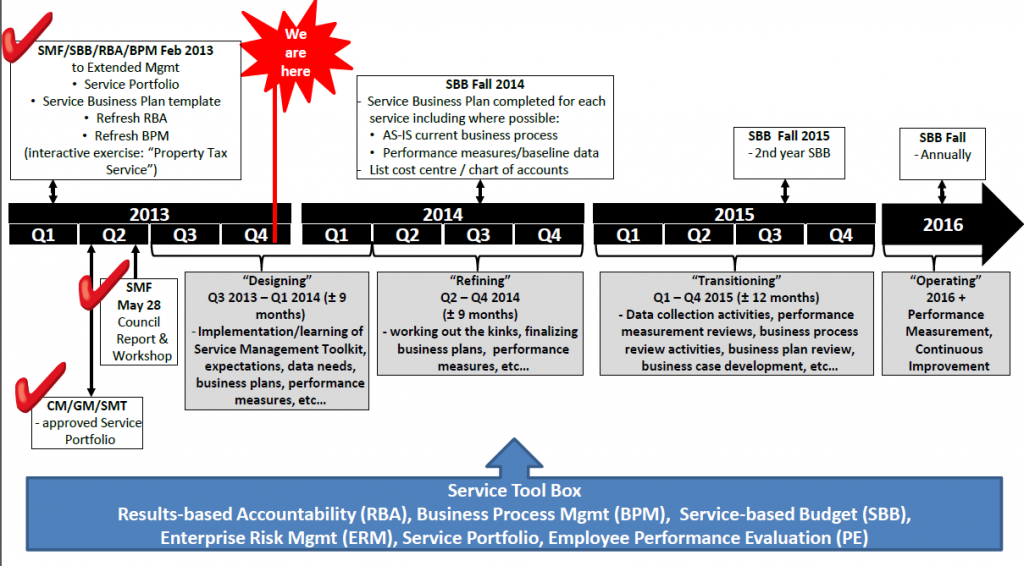
First, if you ever wondered what they do at city hall – charts like this are an example. This was not an easy task. It sets out the time frame to get to the new approach. This will be a very significant shift for staff and will be the making of careers for some and maybe early retirement for those who can’t make the transformation.
Public input and education are a critical part of this process. What the city wants to do is promote dialogue about: Service management, Council and Service Owner roles and responsibilities, and the portfolio of services delivered to the public.
The city wants input on the level of service performance accountability reporting people want to see, along with the Importance and value of services delivered.
Auditor Jones wanted to know where Council felt they fit into the process. Were they OK with maintaining a strategic view of services by making decisions regarding commissioning and/or decommissioning of services; increasing and/or decreasing service levels and their appetite and/or tolerance for risk and a review of service portfolio?
Examples of de-commissioning a service can be seen in the 2014 budget. Do you want leaf collection in the fall as frequently; how often do you want sidewalks plowed.
Jones asked: Do you accept Council’s role and responsibilities? 100% they said BUT, …there was still some work to be done to show the link from strategic goals to performance management.
The report that was being discussed set out Senior Management, Service Owner and Staff Role and Responsibilities. Each was to:
Maintain an operational and tactical view of services by: making decisions regarding how services are delivered within the limits of Council approved service levels and budgets; determining, tracking/monitoring and reporting on performance and identifying risks; determining and implementing opportunities for continuous improvement; reviewing services and maintaining the service portfolio based on the decisions of Council.
Jones went on to give a detailed example as to how this would work using Burlington Transit as an example. Those details will be part of a different article.
Everything the city does under the 2015 budget will be somewhere within the Service Portfolio that is currently being revised and refined. That data is expected sometime in the spring when it can ideally become part of the election debate.
At this point in time the service portfolio consists of:
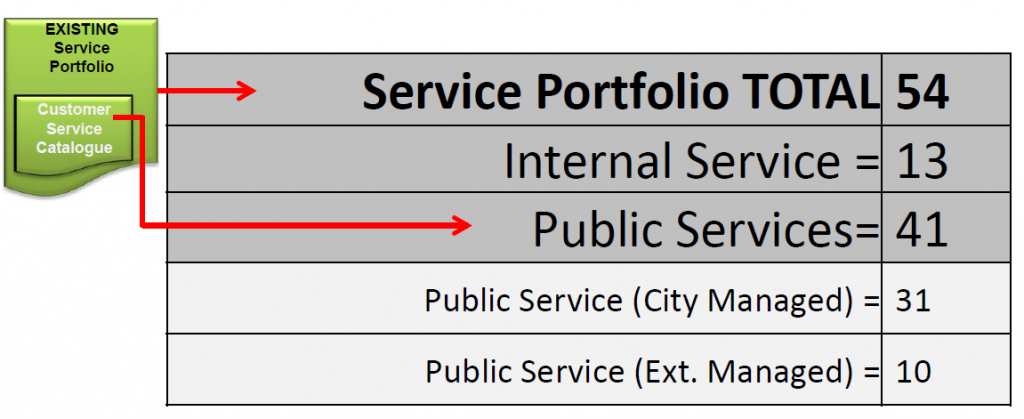
A Service Portfolio is a list of all the services the city delivers. With the new Service Based Budget there will be a business plan for each service that will be approved by each Council at the beginning of its term of office. This basically sets out what the city is going to deliver.
Full details of that portfolio have yet to be released – there could be some surprises in that document.
The core, the foundation of this new approach is the service that the city delivers. What services does the city want to be in and which services does the city want to get out of. This is a Council decision – what staff want to know is: What is the most suitable cycle time for a Council to review the service portfolio? 60% said at the beginning of new council term; 60% said some other time and 20% said at the beginning of each year. That comes to 140% – is this a harbinger of the kind of number stuff we can expect?
Every service will have a Business Plan that sets out the rational, purpose and the expectation the service will deliver. Whenever there is a change to the Business Plan a Business Case has to be provided.
One assumes these business plans and business cases will be on-line, which, if the Strategic Plan is any example, the public will pick up on very quickly and begin to demand that what is published is delivered. Which is exactly what city manager Jeff Fielding wants them to do – he wants the public to hold his staff accountable for his staff to learn to be accountable to the public they serve.
What is going to be in a business plan: Service Banner, Current State, Sub-services, Recent Continuous Improvements Initiatives, Financial Investment, Human Resource Investment, Emerging Opportunities & Anticipated Risks, Measuring Success and Service Objectives.
The presentation was extensive. Each of the parts of the Business Plan had forms that staff had to complete.
It all starts with what city people call the Service banner which a high level view of what the service is, why it is being delivered, what it will cost and how it will be reviewed by city council.
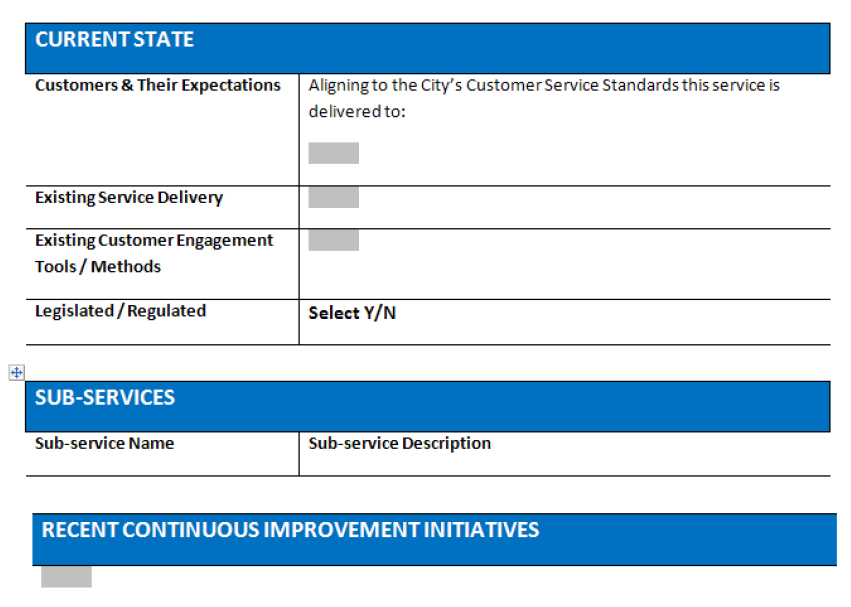
This type of document sets out the working plan for a service. The focus is always on improving the quality of the service and keeping the cost in line.
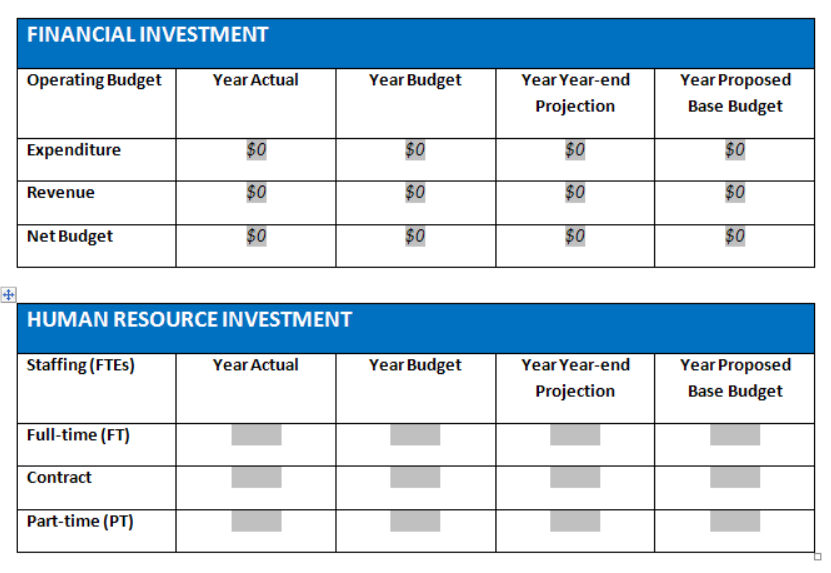
How much money has to be put into the service and what are the HR needs. Burlington has managed to keep the number of people on staff down – and without the use of all that much in the way of contract work.

City manager Fielding wants to see improvements and realizes that means taking some risks – and some of those risks will not work out. Staff can advise Council, Council has to make the decision. The public has to learn that changes need to be made and that much of the territory we are moving into is uncharted waters. Mistakes will be made and the public is going to have to learn to accept the mistakes. The Pier was not a mistake – but it was a classic example of terrible oversight and shockingly poor management.

These are the documents that performance evaluations are going to be based on: Did city hall deliver – and if they didn’t, why not and if the why not isn’t satisfactory maybe HR will suggest another line of work – outside city hall.
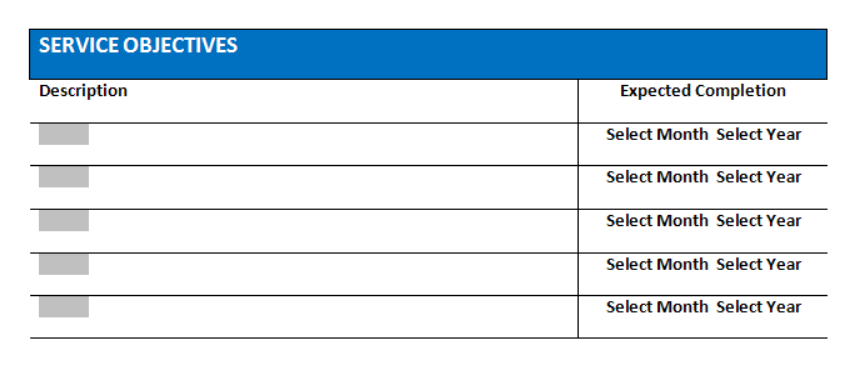
For city manager Jeff Fielding it is all about improvement in the way services are delivered along with a hard look at what the city wants to actually deliver. Fielding isn’t a hard-nosed, cut everything to the bare bones. He thinks the flowers along main roads is a plus and are a part of what makes Burlington the top city it is – BUT he wants to make sure the public fully understands the costs – and is prepared to pay them. Fielding says the ear he has to the ground tells him the public is prepared to pay the cost for the extras – Council of course has to make that decision.
With Council having had an overview of the process Auditor Jones wanted to know how they, Council, wanted to track what was being done.
She proposed that Council review the service portfolio at the beginning of each new council term. The Service Portfolio is that list of all the things the city does – the different businesses they are in.
All the Business Plans for all the services in place would be before Council and be made part of the orientation process for a new council and reviewed again annually during the budget process.
Council would look only at those services that have had a change made to them which would be shown in business cases that would be before Council. Waiting for a staff member to decide a change was needed and that a business case should be written up works only if you have a civil service that is responsive and genuinely feels they are accountable to the public. Many are, quite a few are not – it’s a culture change that is still being created.
Auditor Jones then wanted to know: What is the appropriate frequency of reporting performance
Measures; 40% said quarterly; 40% said semi-annually and 20% said annually
Jones took the middle road and proposed that management report to Council semi-annually to coordinate with financial reporting starting in 2015.
Management proposed to assess quarterly as the methods and data for calculating performance measures become stable, predictable and easy to access. This is a work in process that will need quite a bit of fine tuning.
Jones then poses the critical question: What does the public needs to know? Key messaging would include: what is the service portfolio?; why is it important to them? why should they care?; what is the service management framework?; what is a business plan?; what is service based budgeting?
The intention is to do this work in Q2 2014 using various communications channels along with Council involvement to actively engage the public in a process of education and awareness promotion.
Jones is close to emphatic when she says the city needs this valuable information from the public to assist Council in making decisions about services and service levels and to help administrate and prioritize initiative and activities. The city will begin gathering this kind of information in Q3 of 2014 for the 2015 budget and every year after that to inform the budget process.
What is the most suitable cycle for review of a service?
When a service review is defined as a formal undertaking by the service owner to ensure what is delivered is of the highest value to the community; that it applies best modern practices for cost-effective delivery, and directs valuable, limited resources to the delivery of community valued programs and services, a business case is prepared. The limitation here is that it is the service owner making the decision to review. The city might want to look for a way to pull the public into the process.
Council split on that approach as well: 40% said let’s do it bi-annually; 40% by priority sequence and 20% based on some other criteria.
Management came back with having management determine a service owner and Council requirements and develop a Service Review Framework and Methodology for implementation in 2016.
The public will participate – if you give them the opportunity. More than 70 people turned out for a budget review that was held at the Art Centre. The city didn’t take advantage of the opportunity to hold an event at Tansley Woods, where space is admittedly limited nor did they look at all the space in the Alton Campus.
And that was it – Auditor Jones had set it out for them:
Develop performance measures and complete business plans
Undertake continuous improvement efforts
Develop and implement: service based budget views; service performance accountability reporting and service review framework and methodology. Then educate the public on service management
With just under an hour for the presentation Jones asked: What do you think? And there wasn’t a word, not a peep from one of the council members. All seven members of Council were totally mute. Not a word, not a question. There was no interaction, no debate – nothing, which did not bode well for where this vital initiative for the city is going to go.
What was it that Jones said that stunned the seven? If the elected types don’t respond – what likelihood for a robust public response?
Before this new approach gets taken out to the public a lot more work needs to be done on the current council – because they didn’t appear to get it.
Jones has been the city auditor since January of 2009. A 20 year Royal Bank Financial Group veteran where she ended her career with the ban as senior manager of enterprise operational risk assessments. She also holds business degrees from Dalhousie and Queen’s universities.















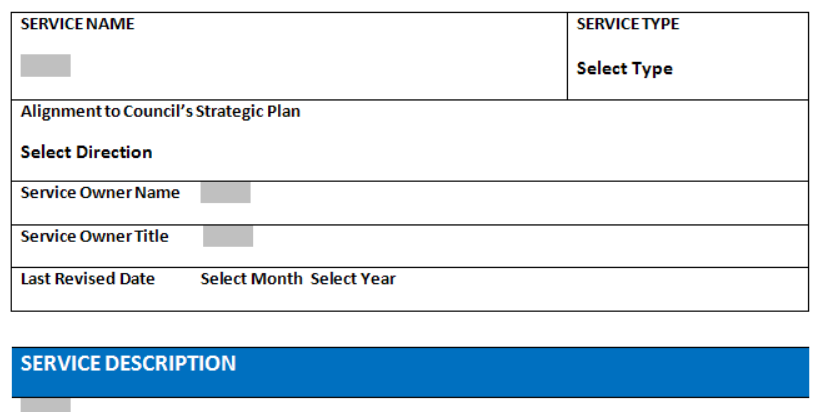






Wow. I have managed to sit through one committee meeting with the city manager presenting on infrastructure. I thought it was quite long winded and kinda danced around a bit, I didn’t find it to be straightforward and to the point. I had criticized the presentations in my mind as well as the manager thinking that he wasn’t selective enough in what he brought forth. I shamed myself for being judgemental. I now understand why it was so long! Counsel couldn’t say anything at this auditor’s presentation because they were overwhelmed. As someone who is trained to write and analyze business plans, what you have included here is complicated. It is confusing and there are better methods to collect and dissect the information that is being requested as well as drive the city’s objectives.
So now 50% of staff time will be in trying to figure out how to fill in performance spreadsheets.
Show me where something like this has been implemented and how effective it was.
These processes are quite nice in theory and used to fill in time at university courses, but, you have got to be kidding if this is to be put in place at city hall.
All this does is reduce morale even more, and will build the auditor’s justification for existence.
Waste of time, waste of money, and you will not make any friends at staff level.
I agree with previous comment – Less time compiling stats that are confusing and more effective time spent on providing services . All smoke and mirrors